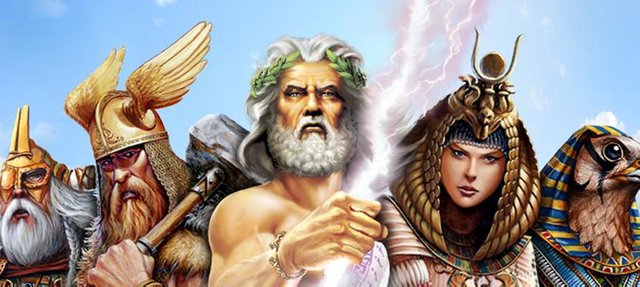Gods and Goddesses of the Sun
Sun gods have existed in many cultures and religions as symbols of wisdom, sovereignty, justice and evolution. They represent the human ideal, a person who has overcome the difficulties of the physical existence, ascending to heavens and merging with the sun, becoming the light that enlightens the world and attracts all the others to follow the same path in order to become released from the physical existence.
According to ancient religions, these heroes existed in flesh and blood, however, it is only possible to know them through myths and legends, which most of times, seem too surreal to be taken as historical facts, so what is the real meaning behind these mythological creatures that inspire the others to become better?
Mythological Gods – Historical or Fictional?
According to theosophists, some theologians and some philosophers, the mythological entities refer to real people, but their stories are "embellished" with cultural elements and metaphors as in a time when most people were illiterate.
Myths were a way to store information and teach about moral virtues, social rules and philosophical concepts. So, the mythological gods have a historical counterpart that may have existed with a different name and context.
The interesting thing about the sun gods is that even in completely different cultures, they share a similar story and an almost identical trajectory. But, most importantly, most sun gods share another interesting fact – they constitute a trinity.
Ancient eastern knowledge taught that every new cycle that humanity goes through, a representant of the divine incarnates on Earth, these masters of wisdom are called avatars and many religions associated a mythological god to an incarnation of the divine.
Solar Deities
Here are some of the sun gods and goddesses in many religions and cultures and their stories. It's important to note that the similarities existed before such cultures came in contact with each other, revealing an important information – the sun gods symbolize an universal aspect of the human psyche, a trait that transcends the mere cultural background.
Also, this means that the (possible) historical counterparts of the mythological gods also refer to different people and not to one person.
- Amaterasu
Sun goddess in Japanese myth and also one of the major deity of the Shinto religion. Her name is derived from Amateru which translates as "shining in heaven". - Huitzilopochtli
Considered as patron god of the Mexica, Huitzilopochtli is the deity of the sun in Aztec religion. The name Huitzilopochtli is commonly translated as "Southern Hummingbird". - Apollo
Son of Zeus and Leto and one of the aspects of Greek Triad, Apollo is the god of light and sun. He was considered as one of the more important god in Greek mythology because he is a god of many things. - Lugh
Grandson of an underworld god, Lugh is the Celtic god of sun, lightning and harvest. The Lughnasadh festival held every august is a tribute to him. - Shamash
Shamash represents as the god of sun and justice in Sumerian mythology. According to ancient Sumerians, he is depicted as a ruler who is seated on a throne. - Ra
Aside from being the creator of ancient Egypt, Ra is also the Sun God. Among all Egyptian gods, Ra is the most worshipped. - Surya
Also known as Aditya, Surya is the Hindu Sun god who is usually depicted as a god in chariot pulled by 7 horses. Surya is a Sanskrit word that literally means the Sun. - Sol Invictus
Literally translates as Unconquered Sun, Sol Invictus is known as the Sun god in ancient Roman religion. - Tonatiuh
Considerd by the Aztecs as the 5th sun and guardian of the Aztec heaven called Tollan, Tonatiuh is believed to be supporting the universe and as a way to stabilize the strength of the Sun god, the Aztecs offer human sacrifice to him. - Tsohanoai
Tsohanoai is the Navajo Sun god who crosses the sky carrying the sun on his back everyday. - Koyash
A son of a Sky God and an Earth Goddess, Koyash is the Turkic mythology Sun god who is usually depicted as a winged horse or a fiery bird. - Inti
Considered ancient Inca Sun god, Inti is also honored as a patron saint of the Inca state. - Freyr
Also known as Frey, Freyr is the Norse god of sunshine and fair weather. It is also said that Freyr grants peace as well as pleasure on mortals.
Jesus as a Sun God – Jesus Christ, a Solar Deity
It is impossible to ignore the fact that the story of Jesus and the story of the sun gods in all religions follow the same pattern.
Death and resurrection is part of the journey of many of the sun gods, as well as a last temptation and an ascension to heavens, or, alternatively, the spiritual realm.
But does that mean that Christianity is false?
No, it doesn't. This means that from the perspective of ancient philosophy, Jesus is one among many other beings that reached the human ideal and served as a role model in their cultures.

Increasing the Visibility of Original and Engaging Content
Like @Curie? Support by voting Curie as Witness! https://steemit.com/~witnesses
Join us in Discord https://discord.gg/G6RPUMu
References
Wikipedia - Solar Deities
Keith Hopkins - A World Full of Gods



